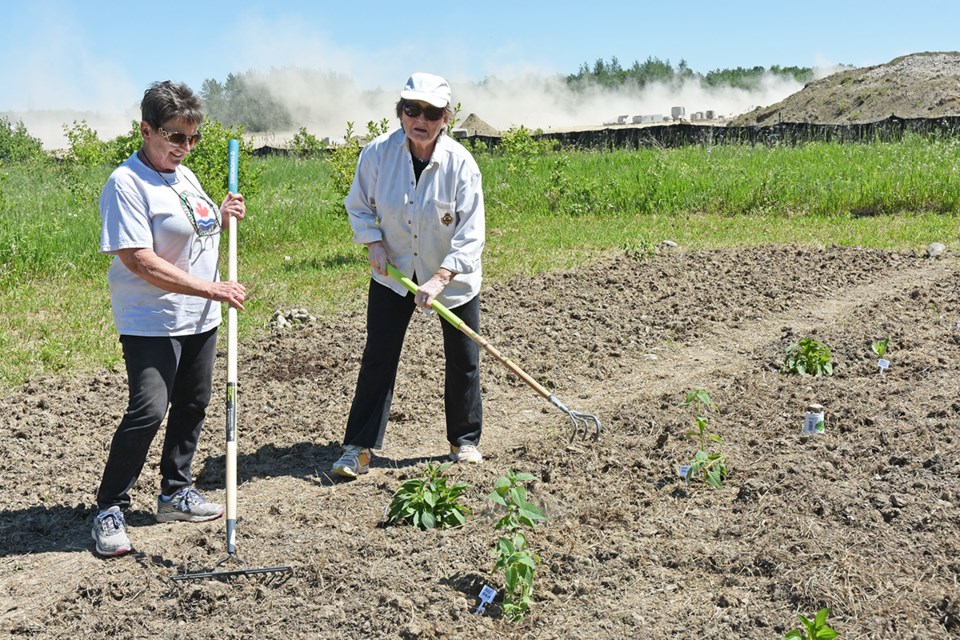Some local gardeners are reporting fewer pollinators in their gardens this year.
The long winter, rollercoaster of temperatures and deep freeze in April have apparently taken a toll on bees and butterflies.
“I haven’t seen any pollinators, except for bumblebees,” said Janet Mills, co-president of the Bond Head/Bradford Garden Club.
It’s an observation that is just one reason why the garden club has decided to plant a pollinator patch at the Danube Seniors Leisure Centre.
The garden club tried once before, planting a pollinator patch at the Highway 400 commuter parking lot. The patch was quickly swamped by snow plowed there in the winter and trash in summer, so it never became established.
The new patch, which was inspired by Carol Dunk, author of Roadsides for Pollinators, is a program that encourages the planting of native species that provide both habitat and food for pollinators, utilizing roadsides, cloverleafs and other urban lands.
“Pollinators are in trouble — not only the European honey bees but our native bees as well,” wrote Dunk. “Their troubles begin with pests and diseases, continue with habitat loss and are finally topped by our use of pesticides such as neonicotinoids.”
Planting pollinator patches can at least give native pollinators — moths, butterflies, beetles, and native bees — a toehold.
The new pollinator patch at the centre measures approximately six-by-six metre — an area mowed and tilled by town staff in preparation for planting.
The garden club sent out a call for donations, asking residents to donate pollinator-friendly flowering plants to the project, bring a shovel, and come out to help plant.
While native species are preferred, the group is happy to accept bee-friendly non-native plants, as long as they are not invasive species.
The club is looking for diversity, and wants plants that flower early in spring, at the peak of summer, and in the fall.
Goldenrod, bee balm, echinacea, lovage, sage, oregano, black-eyed Susan, and milkweed are among the plant donations already received, or occurring naturally on the site.
“There’s lots of naturally-growing milkweed here,” which is vital for the survival of the Monarch butterfly, said JoAnne Norton, co-president of the garden club.
Right now, the gardeners are using watering cans to bring water from the Danube Centre, and they have a rain barrel, which will be set up on cement blocks to provide a gravity-fed water supply.
Future plans include purchasing some native plants from a local supplier, and installing “bee houses” for some of the native bees, like leaf-cutters and mason bees — both of which are highly efficient pollinators.
Anyone who wants to get involved or learn more about starting a pollinator patch of their own can drop by the Danube Seniors Leisure Centre, 715 Simcoe Rd., on June 15 and June 16 between 9 a.m. and noon. Bring a shovel or trowel, rake or hoe, and help plant.



